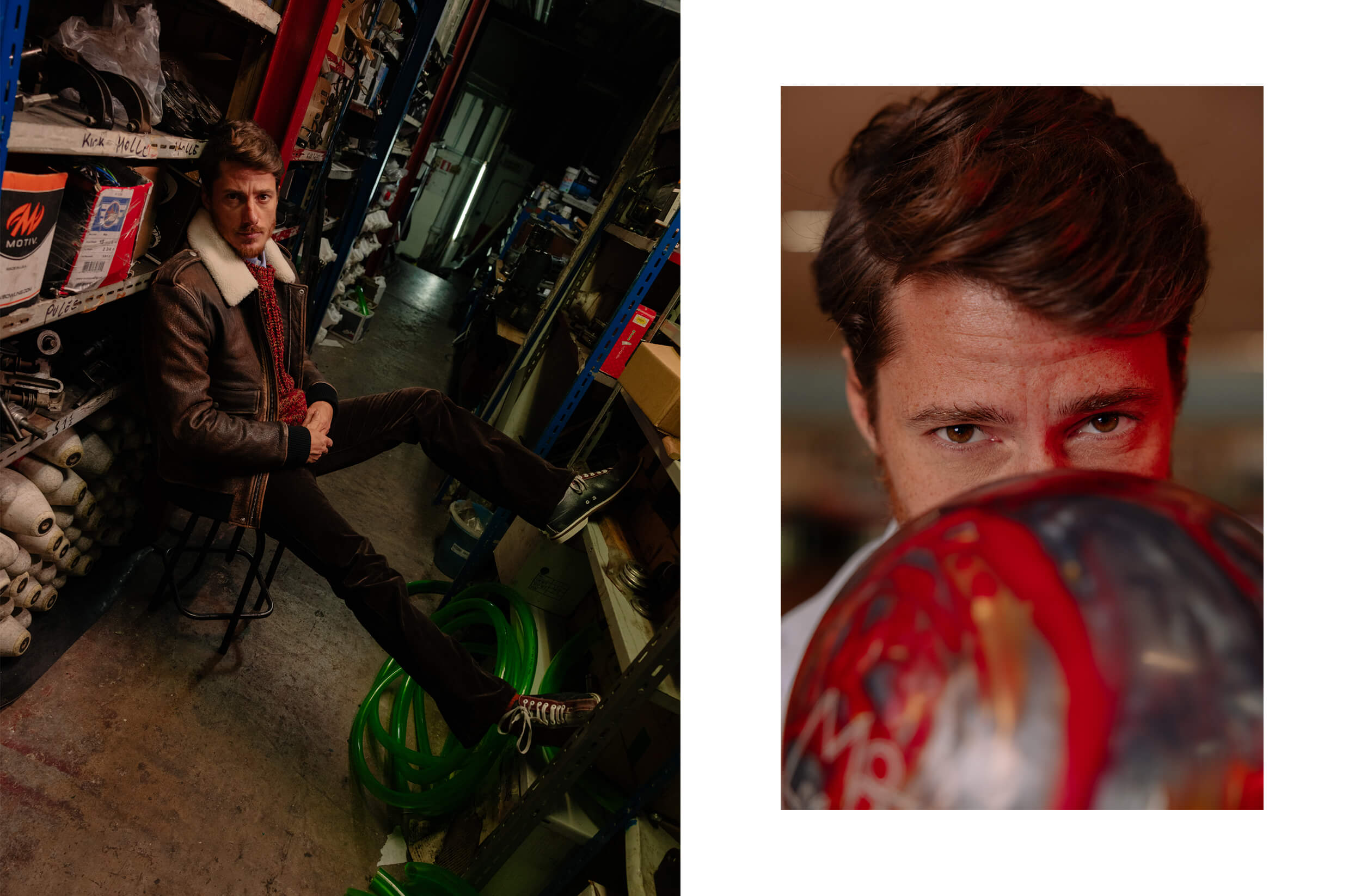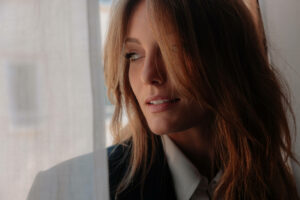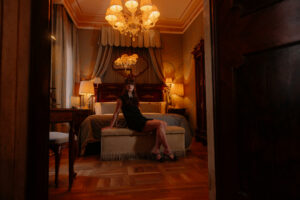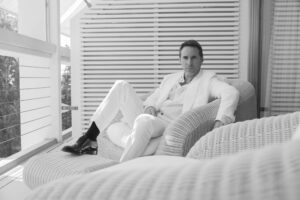A public service, an untold piece of Italian history, pages that on school books are often missing: “Il nostro generale” is a mirror of the past reflecting the present and triggering reflection upon the present.
Antonio Folletto told us about how many young people keep writing to him about the series, and how surprising it is that even those who haven’t lived in those years are so fond of those years, for how distant and unimaginable certain dynamics can be for today’s kids.
In the series broadcast by RAI, Antonio is the co-protagonist and narrator: alongside Sergio Castellitto (playing General Carlo Alberto dalla Chiesa), Antonio wears the shoes of Nicola, the first of the Non-Commissioned Officers of the Special Antiterrorism Unit founded by the same General. In a recount of the darkest years of Italian history, those of the battles against terrorism, blood, and civil conquests, Antonio met people and events that he would have never imagined to have met up close: from the “boys of the Unit” with their anecdotes, up to the President of the Republic.
Among Antonio’s upcoming projects, there’s also the second season of “A casa tutti bene” by Gabriele Muccino, on which there’s so much mystery, but that’s also promising the most unexpected twists.
Waiting to tell his own story, Antonio “lovingly steals” what he can from the maestros with whom he comes in touch, always stopping for a while along his way to ask himself:
why?
How’s it going with “Il nostro generale”, what kind of feedback are you getting?
I’m happy because so many young people are reaching out to me and this makes me happy. I’m getting good feedback from many people in general. It’s been exciting, we’ve had the premier with the Carabinieri Corps, the Ministers, and the President of the Republic: I would have never imagined I would have ever had the chance to shake hands with the President of the Republic! [laughs]
This TV series deals with an important topic that I haven’t lived, so, while studying it, I’ve realized how incredible and indescribable what happened is, even though I can’t really tell how precise the narration is. What did you feel like, watching it?
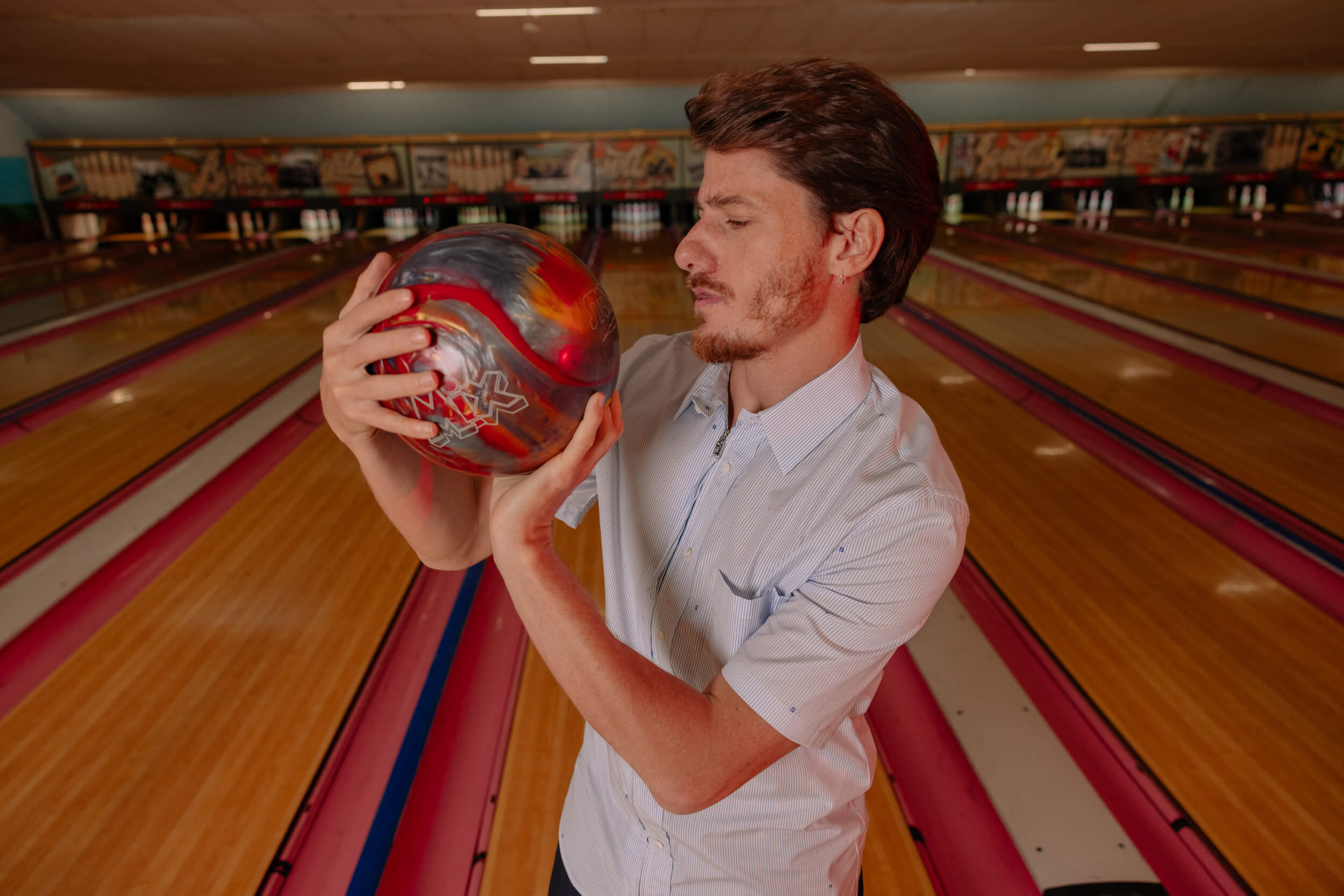
One of the first things I felt watching it was the regret of not having studied and that they still don’t study this piece of history in school, which is why maybe so many young people are reaching out to you; perhaps, we should update our school study programs. For example, I had no idea that General Dalla Chiesa had been the founder of the Anti-terrorism Unit! So many things that today we give for granted do exist thanks to him, and I had no idea. What we do more often talk about is the final phase of this story, the one hundred days in Palermo, the General’s assassination, so I’m grateful for this series to have shown what happened before and so many other aspects that are unknown to many people. In my opinion, the show is a very good narration of the whole story.
In fact, what I really liked about the series is that there are lots of integrations of real-life repertoire pieces, and that’s history: those are testimonies, of a very strong kind. Lucio [Pellegrini] and the DOP did a very good job, they shot in 16 mm, in black and white, so they’ve been great also from an aesthetic point of view.
Many people have no idea of what the Genoa-Turin-Milan triangle was: those who lived in Milan at that time were truly in the middle of a civil war that today we struggle to imagine. In my modest opinion, we’re so lucky because we live in an extremely free country. Let me make an example: have you heard of the Iranian actress Taraneh Alidoosti, who was released from prison on January 6th after having been arrested for the protests in Iran? A few days ago, they told me (and I’m shocked) that an actor friend of mine, who exposed himself in support of this woman, has been deprived of his identity documents, so he can’t get out of the country, he can’t get back to his family. This is just to say that we’re very lucky, even though we don’t realize it because we’ve never experienced such things firsthand.
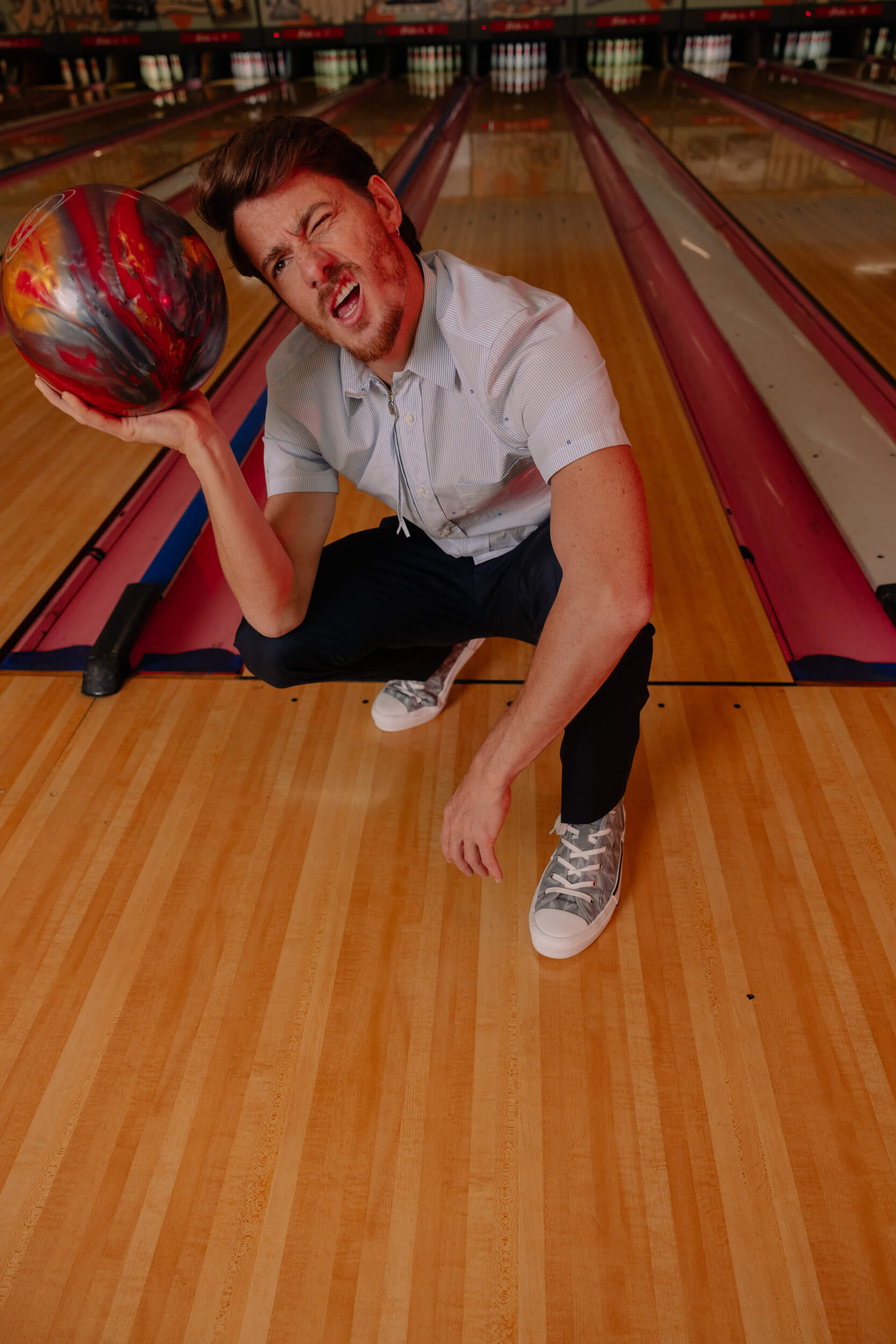
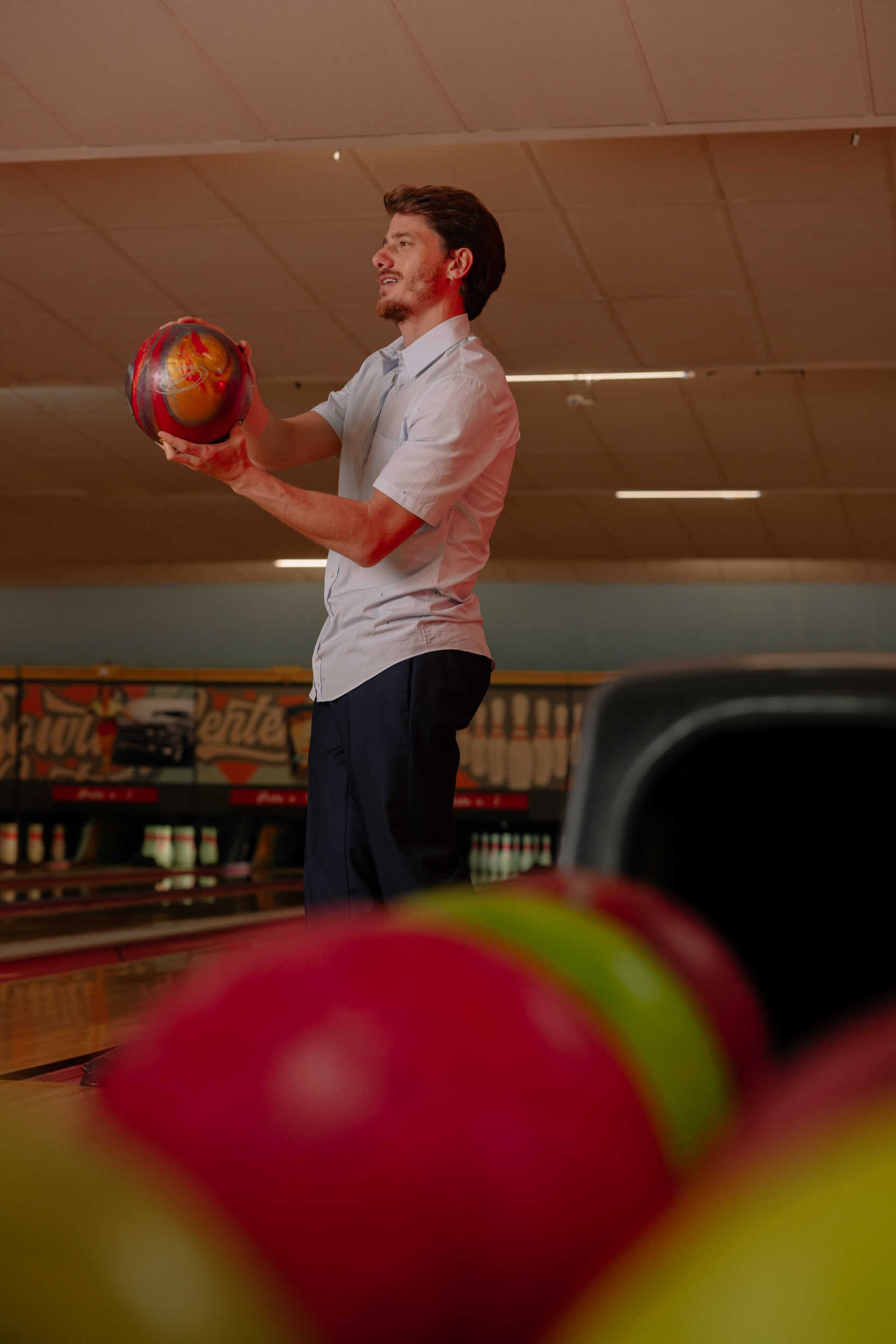
What’s your first cinema memory?
Totò’s face: I have this memory of myself sitting in the kitchen with my granddad, watching on the screen of an old television, one that has nothing to do with today’s super flat-screened, stylish televisions, a movie that I think is amazing, called “Totò truffa”. This is my first cinema memory.
What was your first thought after reading the script of “Il nostro generale”?
I thought that I was going to do something I’d never done before, for which I would have needed great knowledge and preparation because, as I wasn’t born in those years, I knew that the subject was almost unknown to me.
You were right before: the school books or at least mine, did stop to World War II and no one tells you what happened afterward, so I knew that I was approaching something huge, mysterious, and controversial and that it was going to be a very beautiful journey.
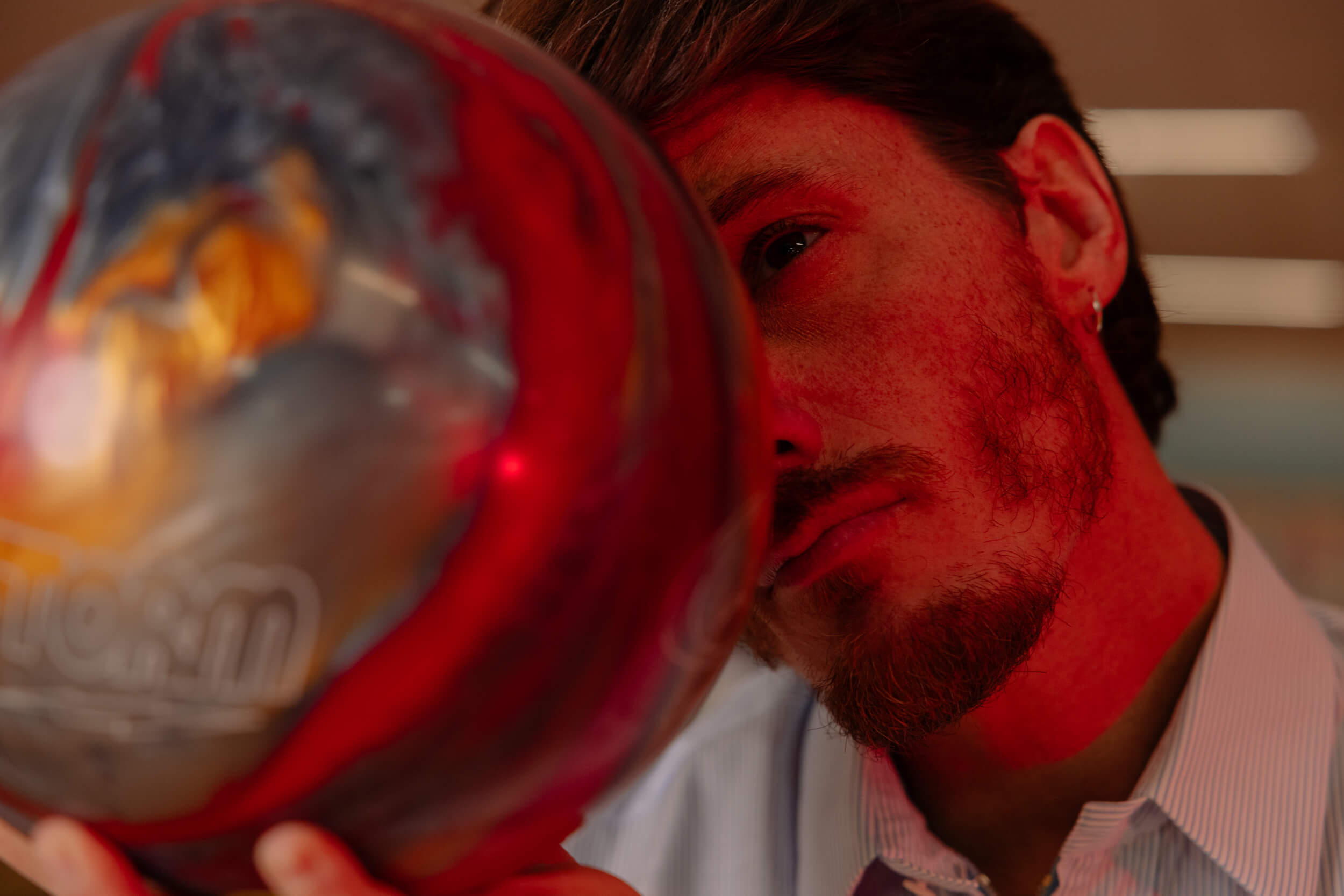
“I knew that I was approaching something huge, mysterious, and controversial”
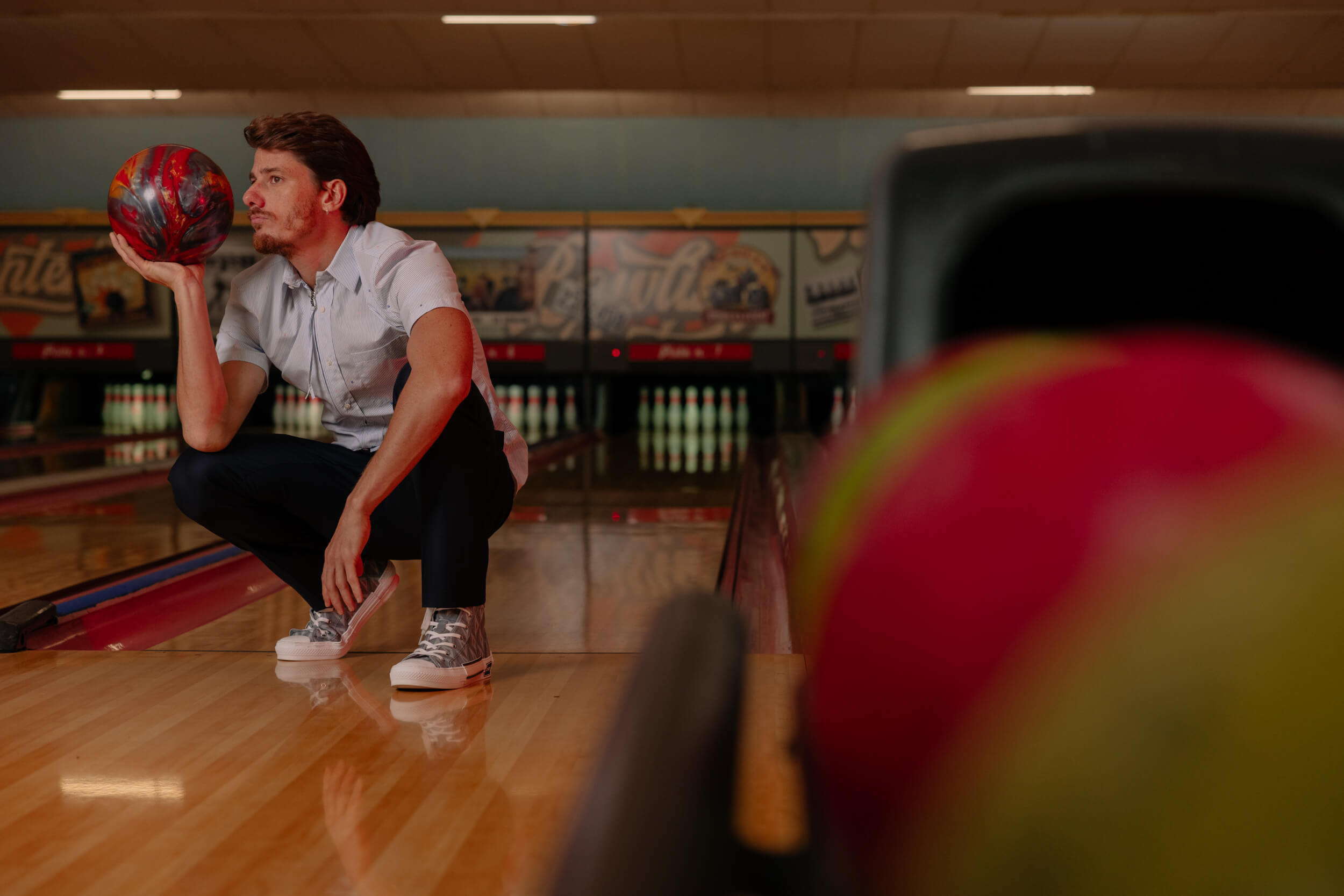
You said you had the chance to meet and speak with some people who lived in those years: do you remember the first thing you asked them or what you “wanted to know” from them? What were these encounters like?
It was exciting, we met those who were “the boys” back then, but today are 80-year-old gentlemen. What I was looking for was simply human contact, to spend a day and talk with “the real ones”, the people who lived those years of terrorism.
We tried to enter their psychology and it was nice because, in the end, you realize that still today they can tell you about those times with incredible enthusiasm and light in their eyes. For example, I remember the eyes of Domenico Petrillo, who was one of the boys from the Unit, that sparkled when he mentioned Dalla Chiesa, he talked about him almost as if he was his father: I guess from now on the General will be even more appreciated. These people in those years were boys who, at some point, found themselves in a special Unit that had never existed before, with special powers, and who, at some point, had to face a civil war and make decisions, and we’re talking about 20-year-old kids. Today, I really struggle with imagining a 20-year-old person doing something like that! [laughs]
These encounters, therefore, helped us get in their heads and understand what was their life like and what kind of sacrifices they did: they couldn’t have a life, they couldn’t love anyone, they couldn’t establish relationships, so much time would go by without anyone being able to get in touch with them or know where they were… I mean, they mustn’t have had an easy life.
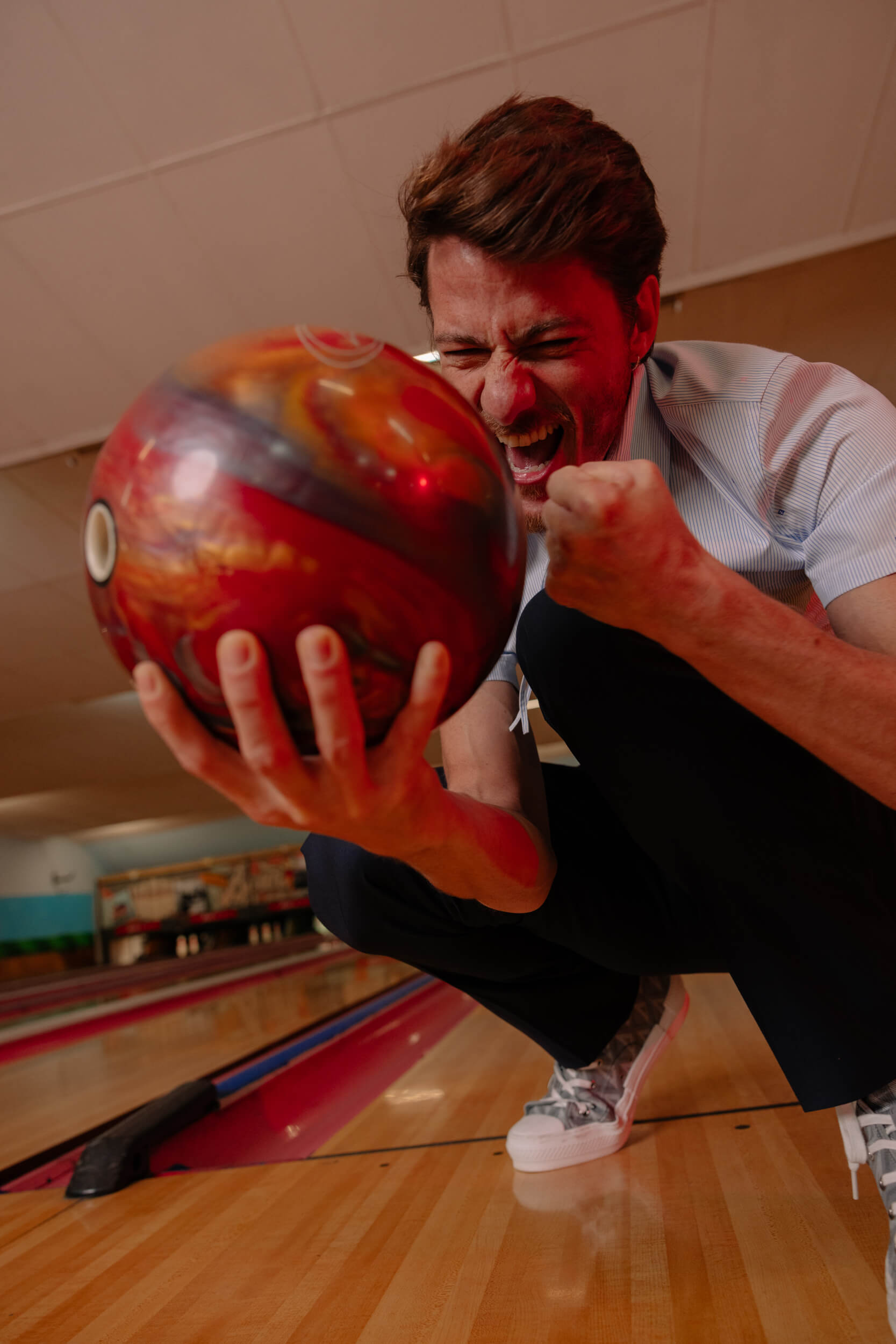
Another aspect of the series that struck me, in fact, is precisely the human side, the tale of the private lives, of the General, his boys and his kids, who’ve always been telling his story and they’re well-known people now. This is a plus that makes us even better understand those years because it’s something that is hardly ever highlighted.
Basically, the show tells what mothers and fathers really do, that is trying to give their children or dear ones a series of values and principles to follow; at the same time, though, there comes a time when you need to empower people and make them become able to make decisions. In my opinion, being able to make decisions, even when sometimes they’re not the right ones, is a great thing: to be strong enough to decide to face something or not to face it.
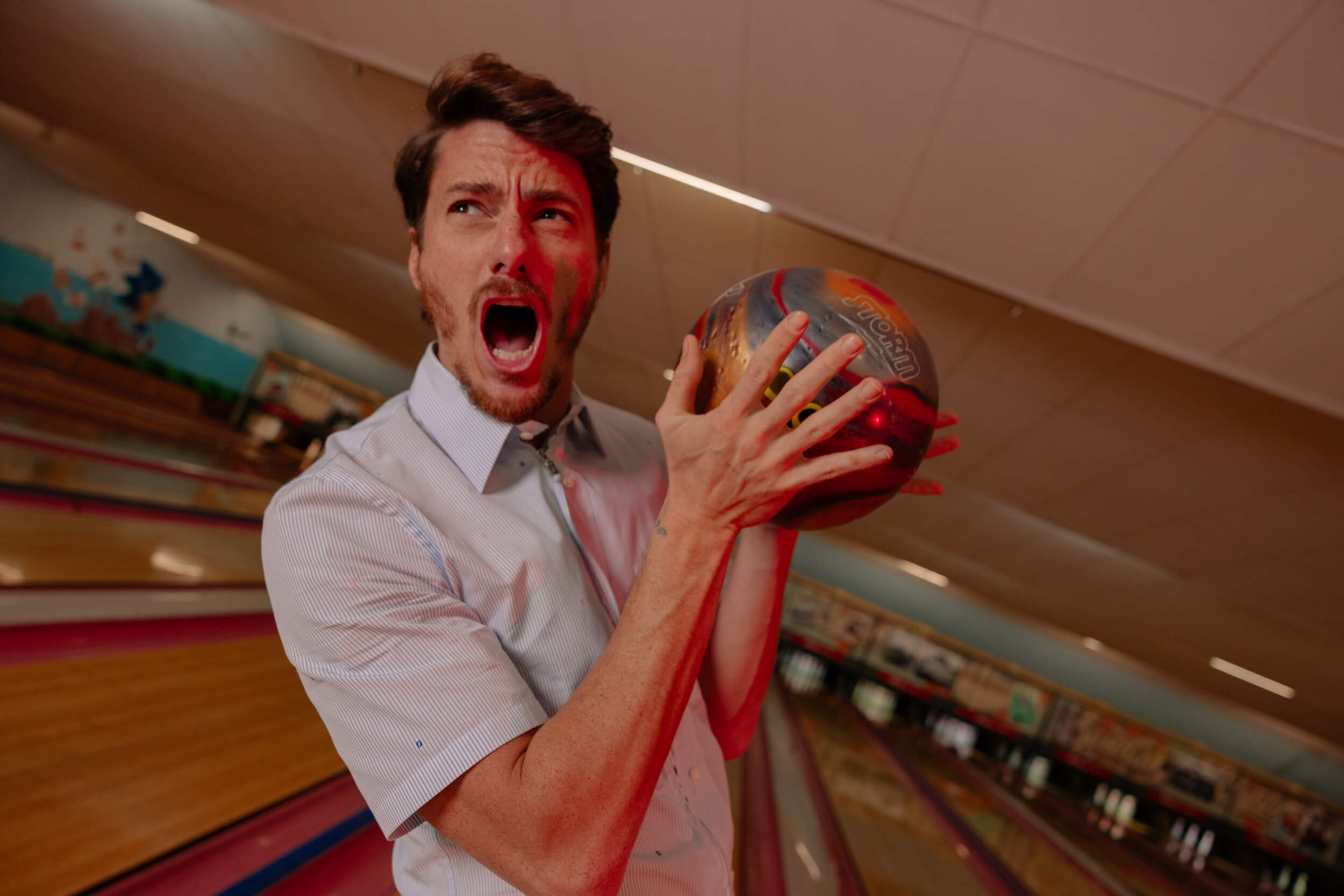
Is this what surprised you the most about the story?
Yes, one of the things that surprised me the most was the encounter with the boys because talking with them was essential. Then, also the readings with my colleagues and with the directors, realizing all the deaths and abductions, and they were so many. While doing this, I really had a moment of upset, and then, when I recorded the voiceover bits, as we integrated some pieces at a later time, it felt incredible to say certain things over the images.
One of the things that impressed me the most is how hard but also beautiful it’s been to go across 9 years of history. I had the chance to work with some maestros of the cinema: the makeup artist and her department, the hairstylist and her department, they all did a great job, given that we all had three looks each, even in one single day.
It was very intense but also beautiful.
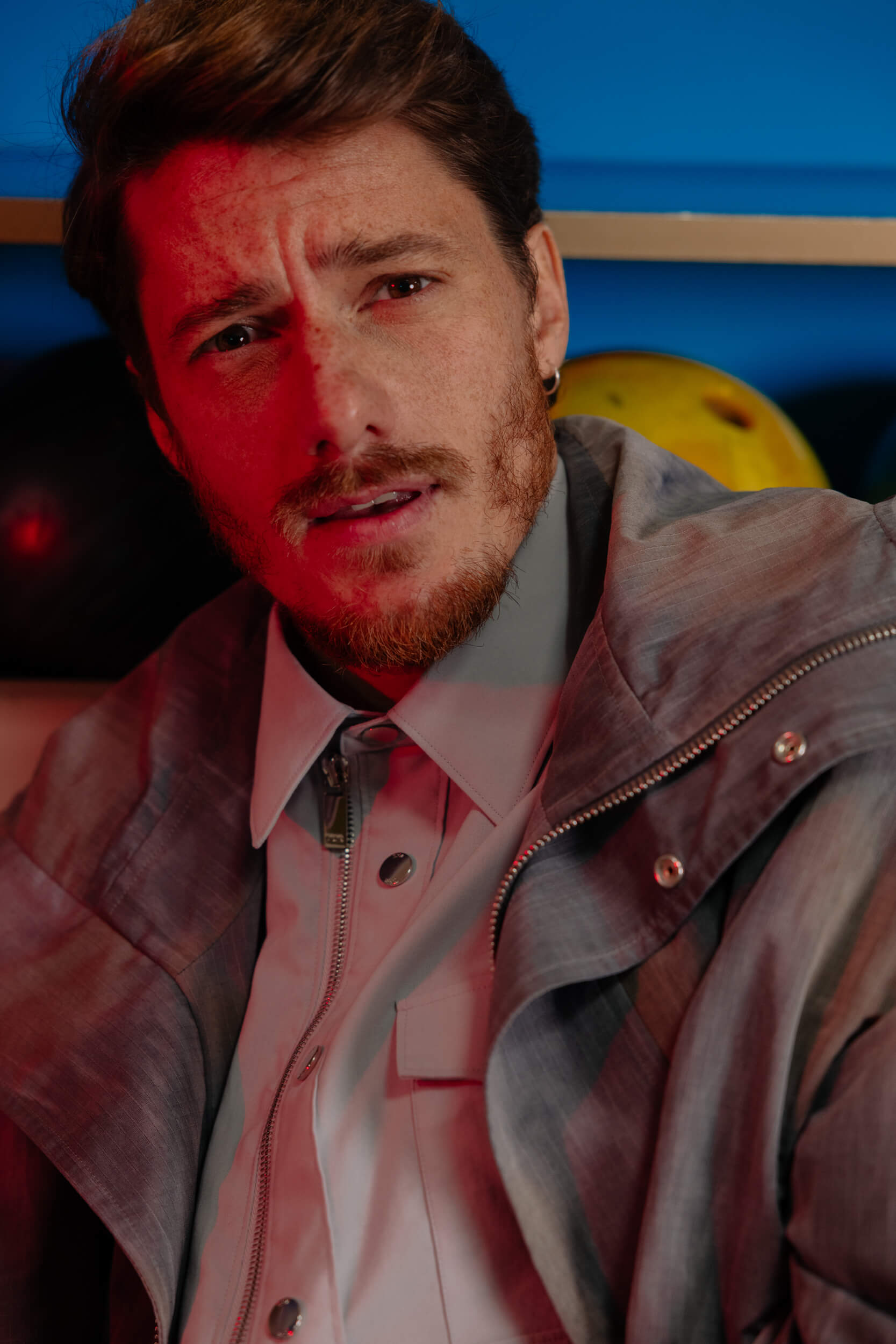
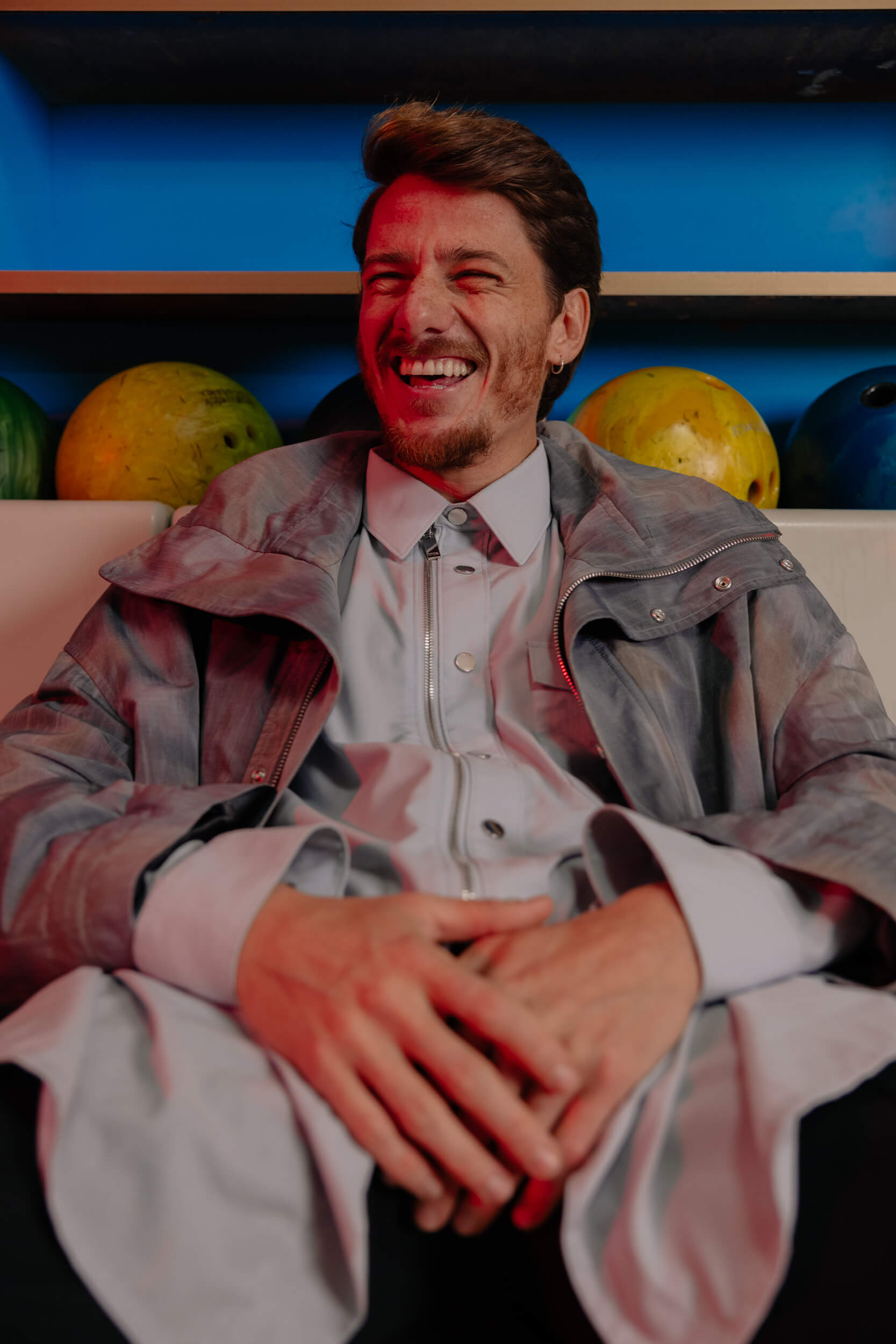
“Across 9 years of history”
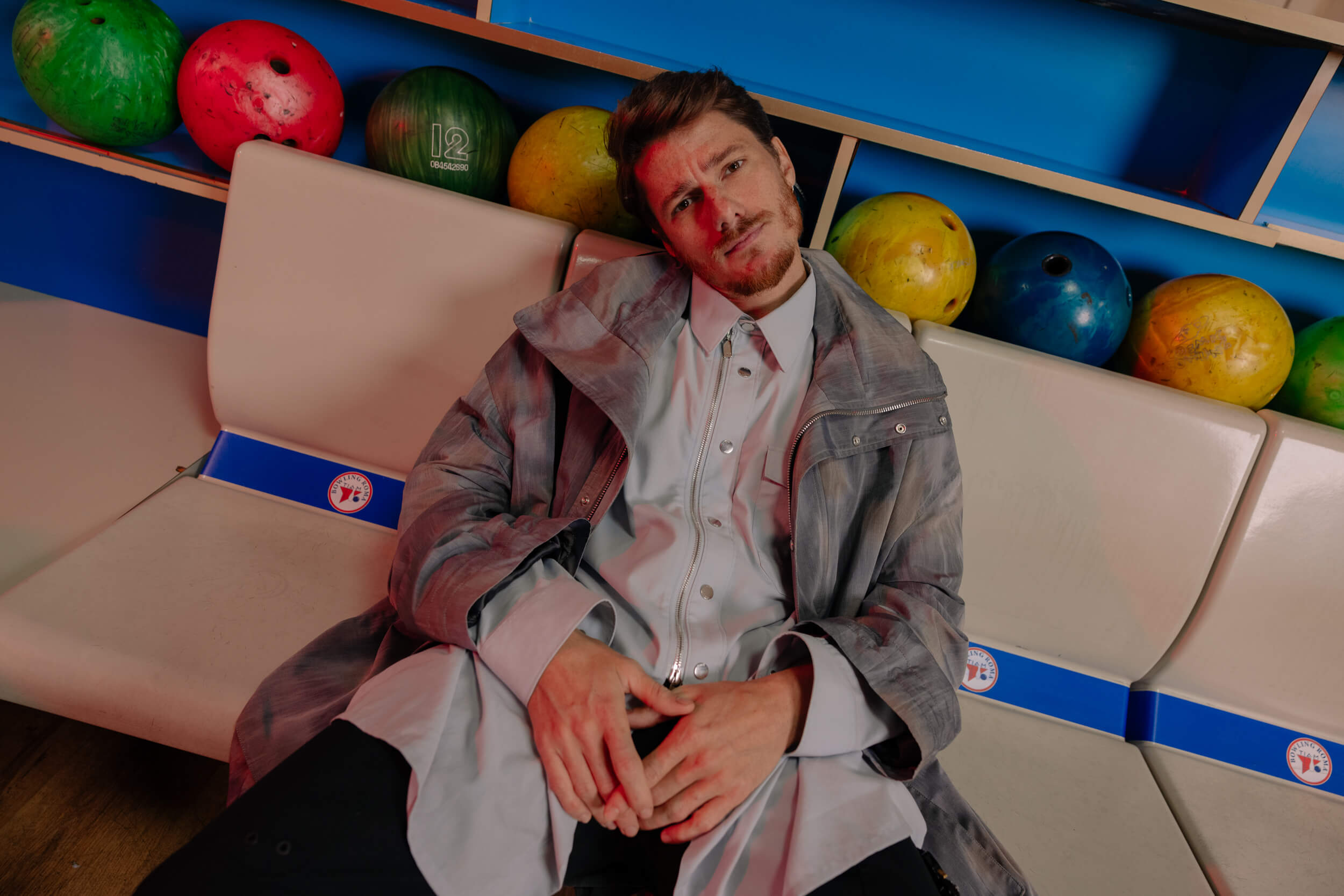
How much of Antonio is there in Nicola and what has Nicola left in Antonio?
I’ve certainly made him my own, it’s inevitable when you’re serving the story, I think; you’re a filter, so, luckily, I’d say, something of you always passes through. What I’ve instantly resounded with, even while reading the scripts, is the fact that Nicola has a discussion-based and conflicting relationship with the General; he wonders things and is brave enough to investigate his point of view and ask questions: is what we’re doing and how we’re doing it truly right? I think it’s essential to question the reason behind things, why they happen and why it’s right to act in a certain way rather than another. This has been very important for me. It’s also been a wonderful experience to perform with my colleagues and the great Sergio Castellitto.
Sometimes, you’re on a track, sometimes life goes so fast that you don’t even realize it, and you keep on that track and try to give all yourself in what you’re doing, however, it’s right, if you feel like something doesn’t add up, to stop for a while and wonder why.
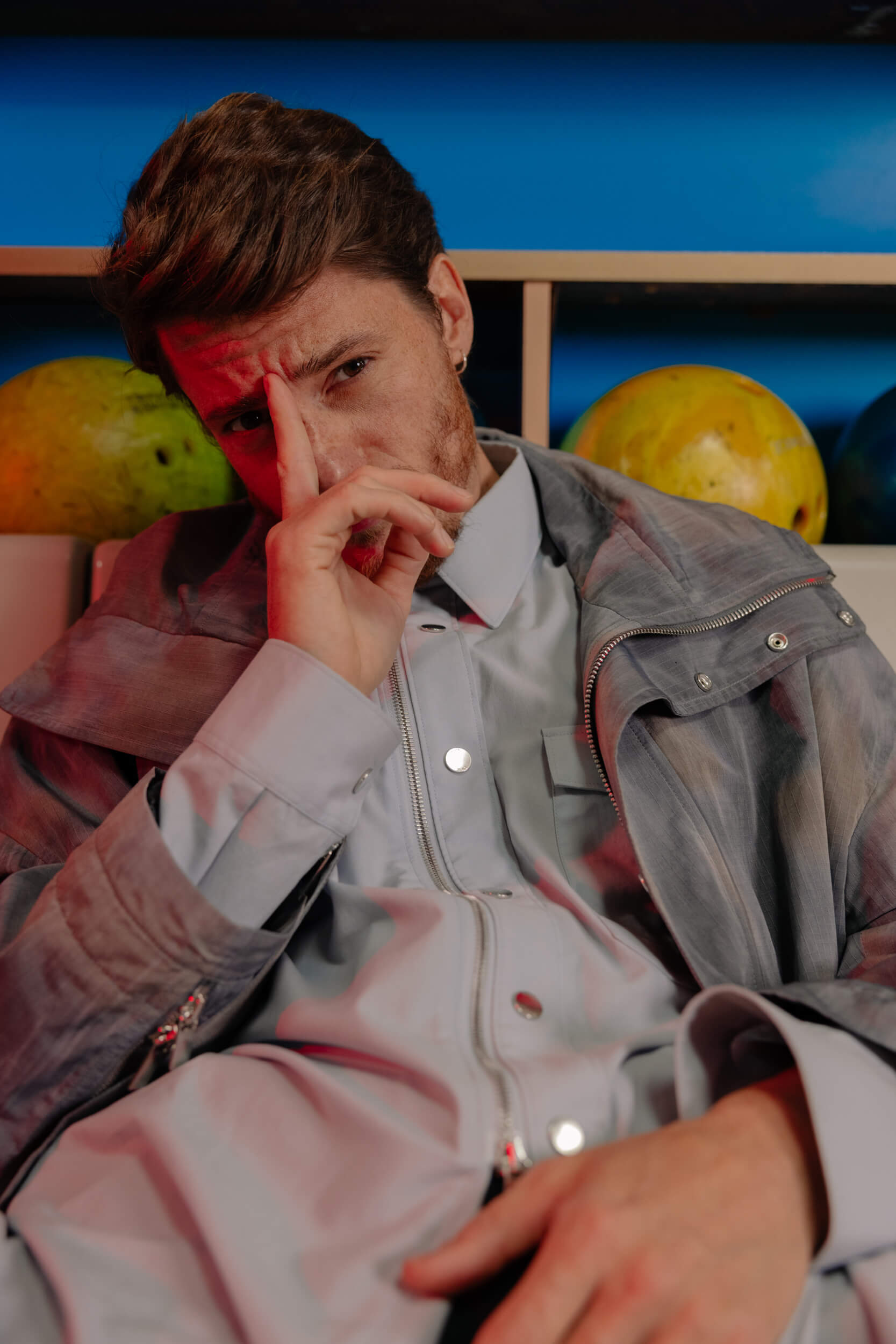
Did you have an emotional or rational approach when building Nicola?
Both, for sure.
The rational approach comes from the fact that you have to follow a script and keep within its limits, so some things need to be done and said because that’s the right thing to do. Anyhow, there certainly was an emotional approach to the story, as well; what comes to my mind now is the scene where marshal Felice Maritano dies: it was a very intense scene, we all got emotional, me, the actor playing Maritano, the director, everyone. Luckily, I guess you can’t really do this job without emotions, you need to feel emotions, I think the main purpose is always to convey something. This series in particular has an important educational and social background, it’s an amazing public service offered by Rai, and the best part is that people watch it and then get attached to the personal lives of the boys and the General. So, the approach was both rational, study-based, and enormously emotional.
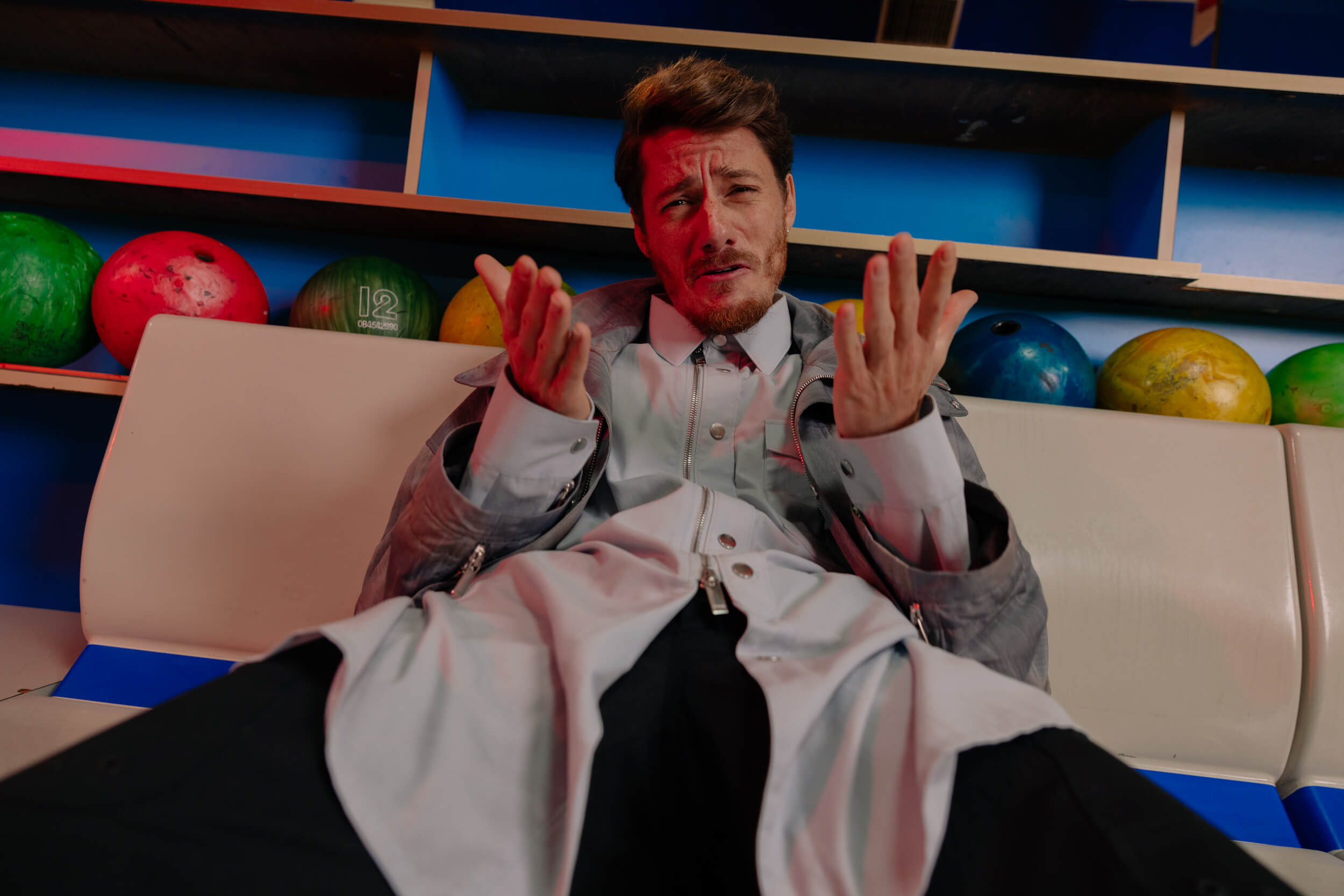
As you’ve already mentioned, those between Nicola and the General are maybe the most intense and sweetest moments in the show: Nicola isn’t afraid to speak his mind, and the General listens to him, sometimes even paternally. What kind of work did you do with Sergio Castellitto to build your dynamics on the screen?
Let’s start by saying that it’s been a great opportunity for me to “steal” from a maestro. When you work with great actors, it’s easy, but it’s not always only easy. On one hand, it’s easy because you know that it’s like passing the ball – in theater labs, for example, it’s a game you often play, you literally pass the ball as if it were a dialogue, a confrontation – and knowing you’re going to receive it with a precise trajectory, usually a perfect one, if you’re supposed to get it fast, you do get it fast, if you’re supposed to get it smooth, it’s smooth, if it’s supposed to hit you in the stomach, it does hit you in the stomach; from this point of view, I feel like saying that it’s easy to work with maestros, but it also requires a great deal of concentration and being 100% into what you’re doing.
Sergio was very generous because he let me “steal” from him with love [laugh]. I worked with an actor, director, and author that has had so many “hours of flight” in this job, so it was nice, an amazing experience.
What would Nicola’s code name be, in your opinion, if he’d chosen one in the end?
You know, I’ve been thinking about it, and I don’t know why but the one that always comes to my mind is “mustache”, I like the way it sounds because it’s short and funny [laughs].
Is there another real-life story you’d like to bring on screen, also considered the social value of “Il nostro generale”?
In the future, I’d like to have the opportunity to deal with a project focused on communication and fake news, in particular the ability to enter people’s minds. In the past, this would only happen via press and television, while today there’s endless information coming at an incredible speed, and they catch you everywhere you are, on the phone, via email, on social media, and even if you don’t have any of these tools, somehow, they catch you anyway.
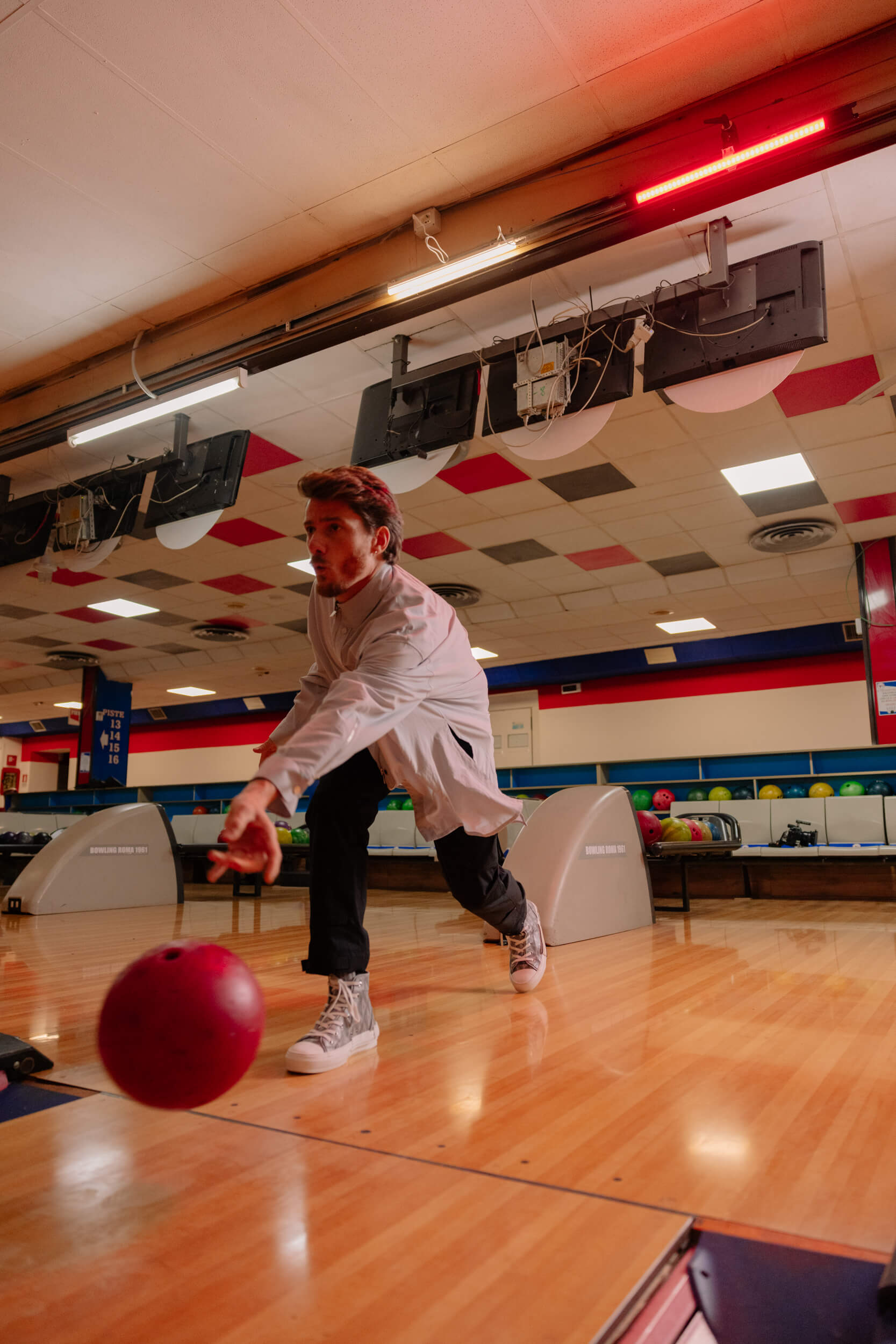
“It’s easy to work with maestros, but it also requires a great deal of concentration”
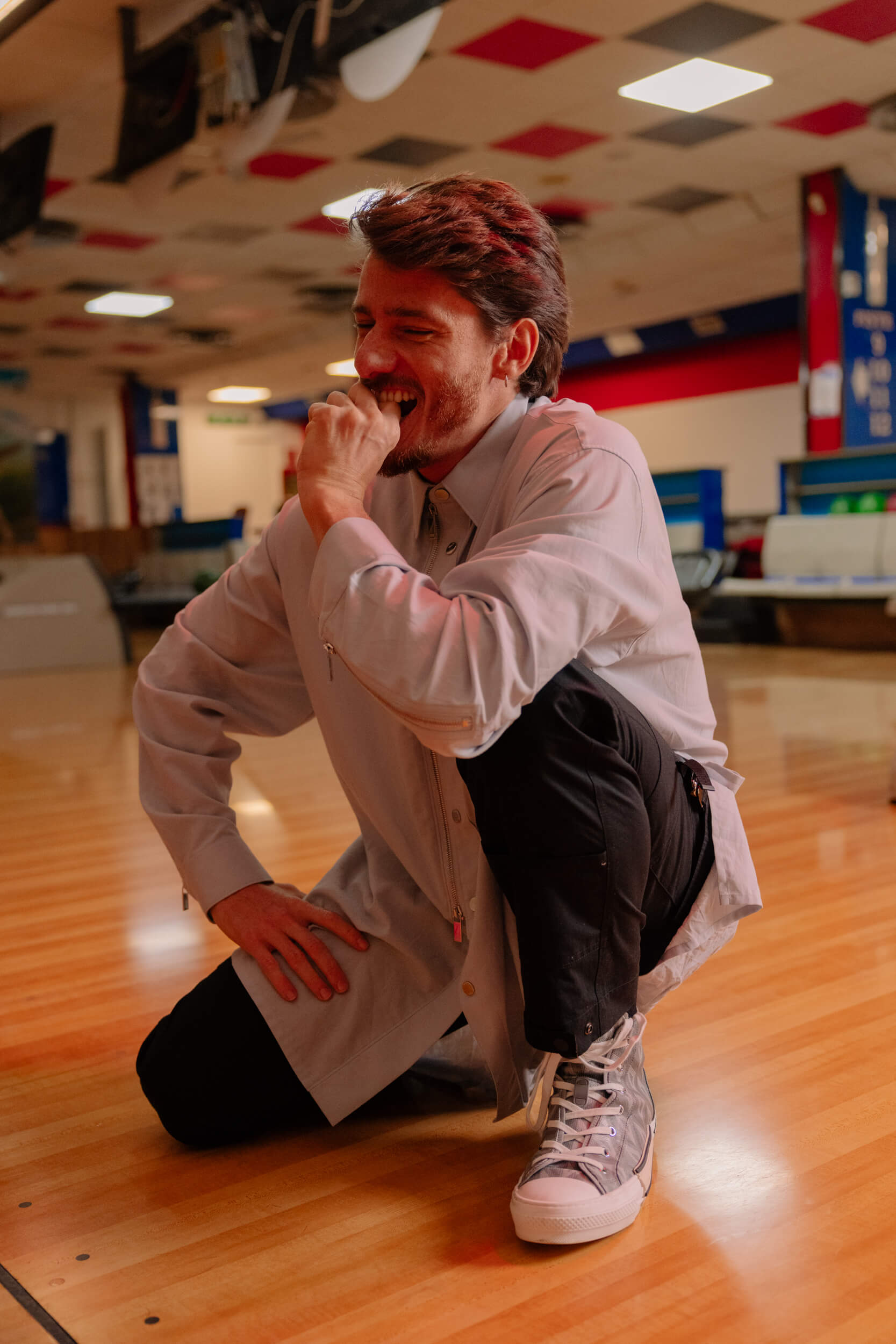
If back then there was the same level of information we have now, how do you think the audience would have faced those years?
We would have certainly had much more data to deal with but in the end, we’re talking about two totally different eras and it’s hard for me to imagine a confrontation between today’s means of communication and the ones they had back then, in that historical, political, social time. Things might have certainly been easier and, under some aspects, more messed up.
An aspect of the series I really liked, but that has also made me ask myself an unanswered question, is to what extent Italian politics have or have not changed on high power levels. Back then, most of the job was done by the General and his boys, but if we think about all the things that still happen today, I can’t but wonder how the higher power levels have effectively learned from our history.
I agree with you. I firmly believe that there’s a healthy side in our politics doing their job following values and principles because, otherwise, people like Carlo Alberto Dalla Chiesa, Falcone, and Borsellino wouldn’t have existed. It’s just that things are often much more complicated than they seem, and sometimes you end up fighting with your “teammates” in order for things to be well-made. Eventually, though, I always believe that good things come our way, sometimes less slowly, sometimes after years of blood, mysteries, and terrorism.
“Eventually, though, I always believe that good things come our way…”
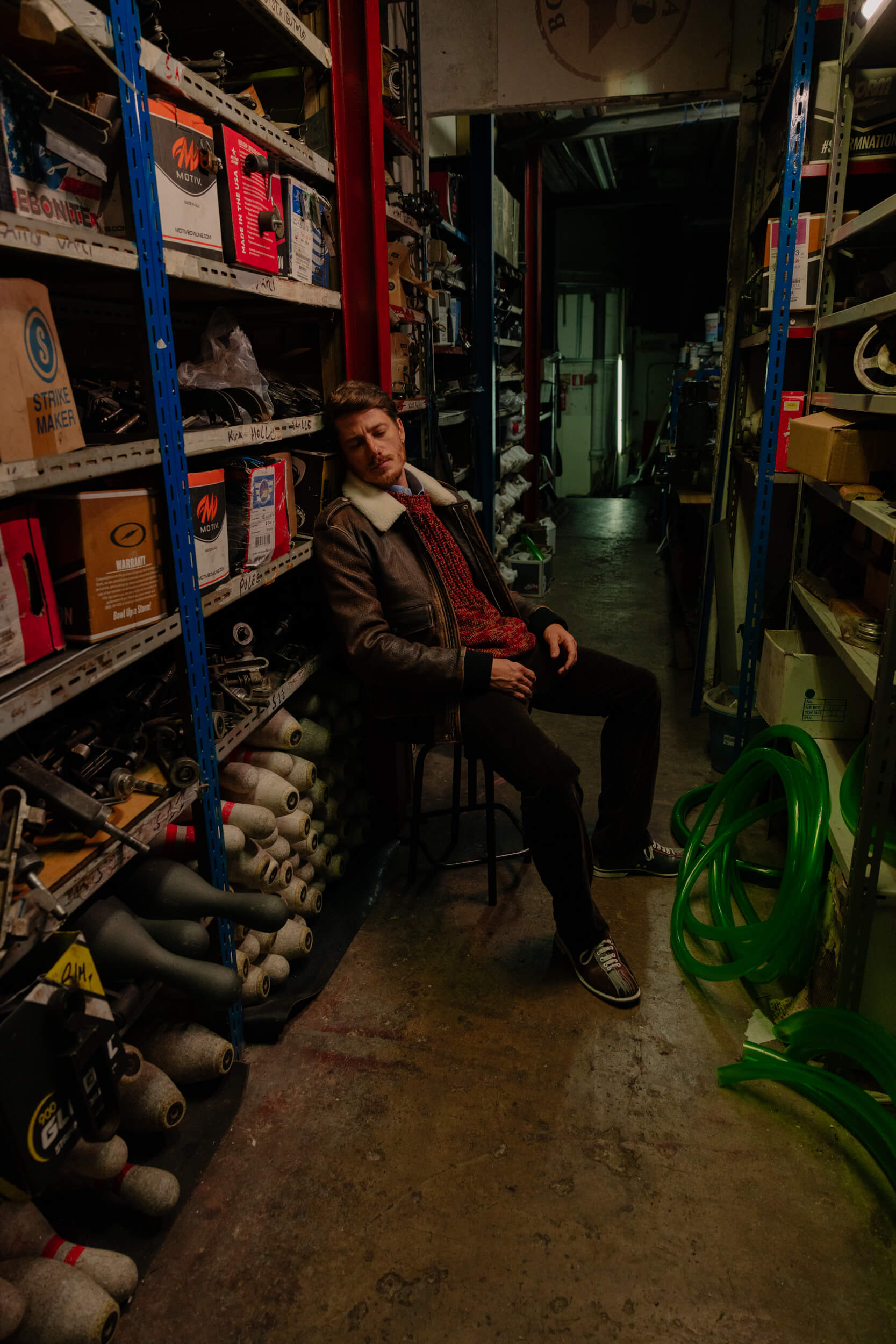
The second season of “A casa tutti bene” is coming soon: how does Diego change?
I can’t say much, all I can tell you is that everyone in the house is fine, as the title says [laughs], but nothing’s as it seems. There will be huge plot twists for all characters.
Are there any particularly interesting dynamics between the characters or some you were curious to know in this second season?
When we finished filming season 1, we didn’t know whether we would have made a second one or not. Then, when they told us that we would have made it, Gabriele called each of us and told us about the life of the characters in the second chapter… I can say that I didn’t expect that the things that happen would have happened at all! [laughs]
The surprises that will upset the audience are the very same that upset us while reading the scripts.
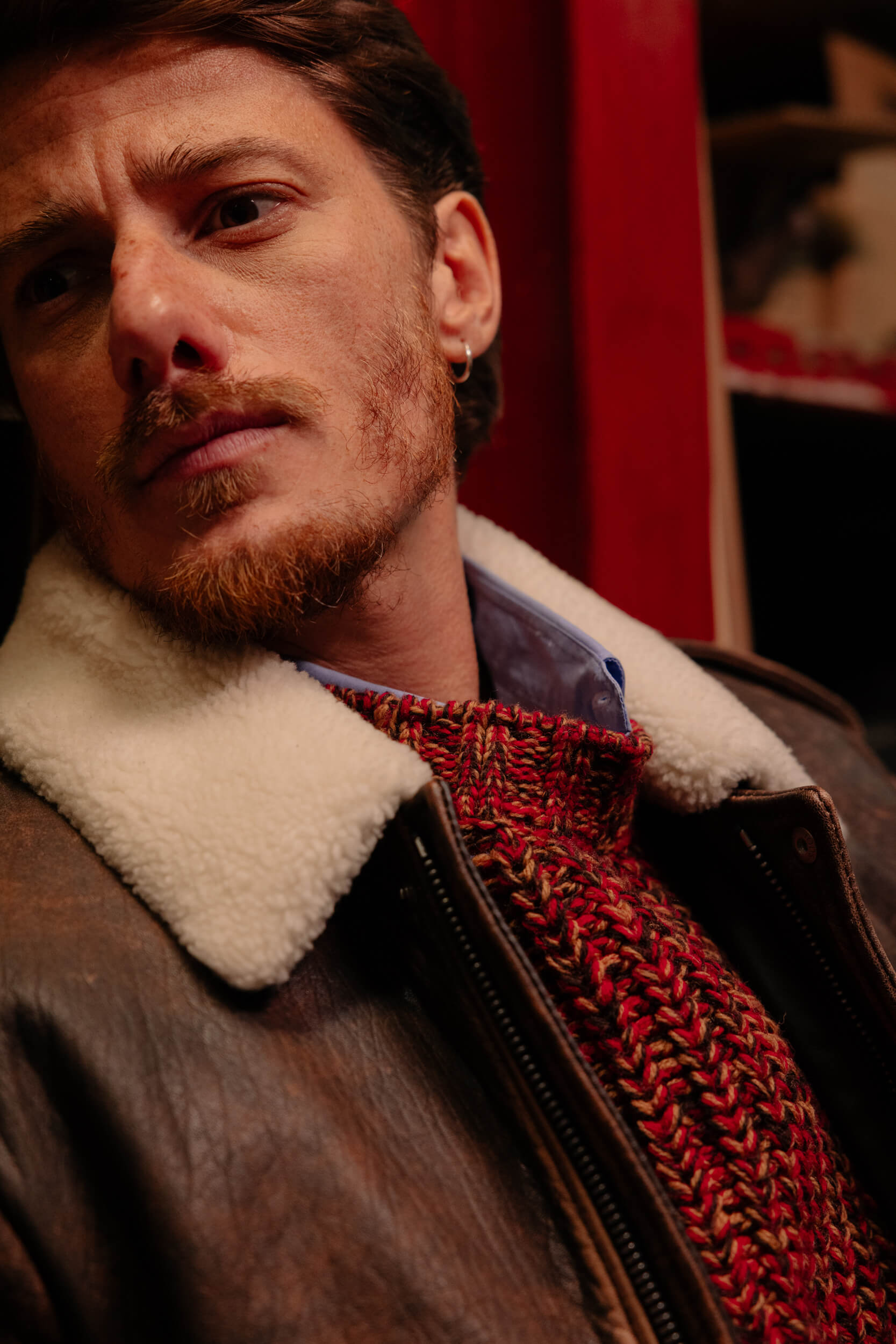
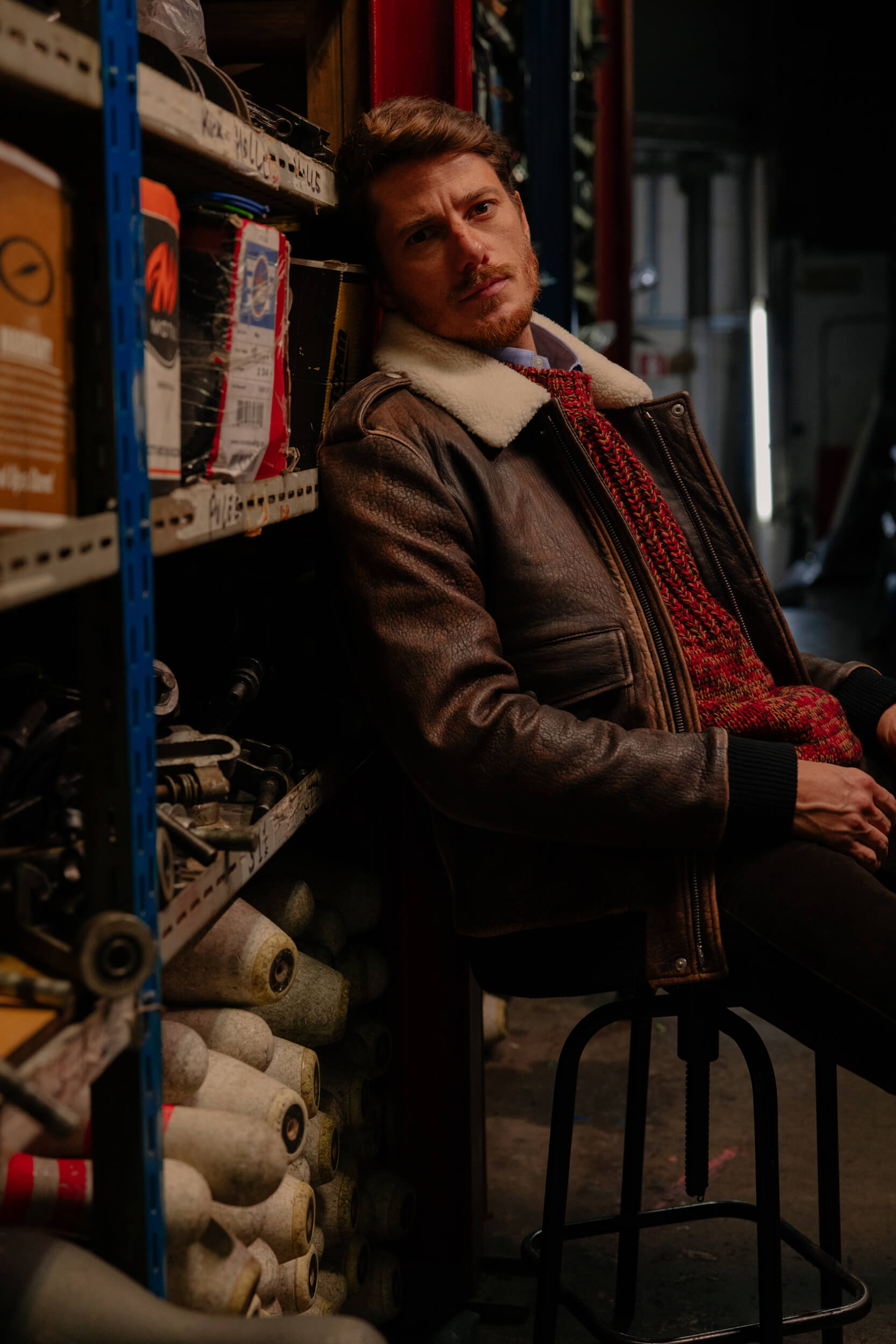
Have you ever considered writing or directing anything yourself?
I struggle with imagining myself as a director because I think it’s a job with too many responsibilities compared to the actor’s one. I think directors have to deal with too many things, they need to give lots of “orders”, it’s what great directors need to be able to do, whereas I like to receive “orders”, I like to be an actor, I love this job too much.
There’s certainly a story, in particular, I’d like to tell, but I can’t tell you what it’s about because otherwise, my dream won’t come true; anyway, I think that one day I’ll tell it, but I don’t know if I would ever want to direct it. A part of me thinks that the things you really care about should be told by you; in my case, maybe, someone else will tell it and direct it, but I do write things that I keep for myself and maybe, one day, when I’ll find the courage, I’ll share them, whenever I feel ready.
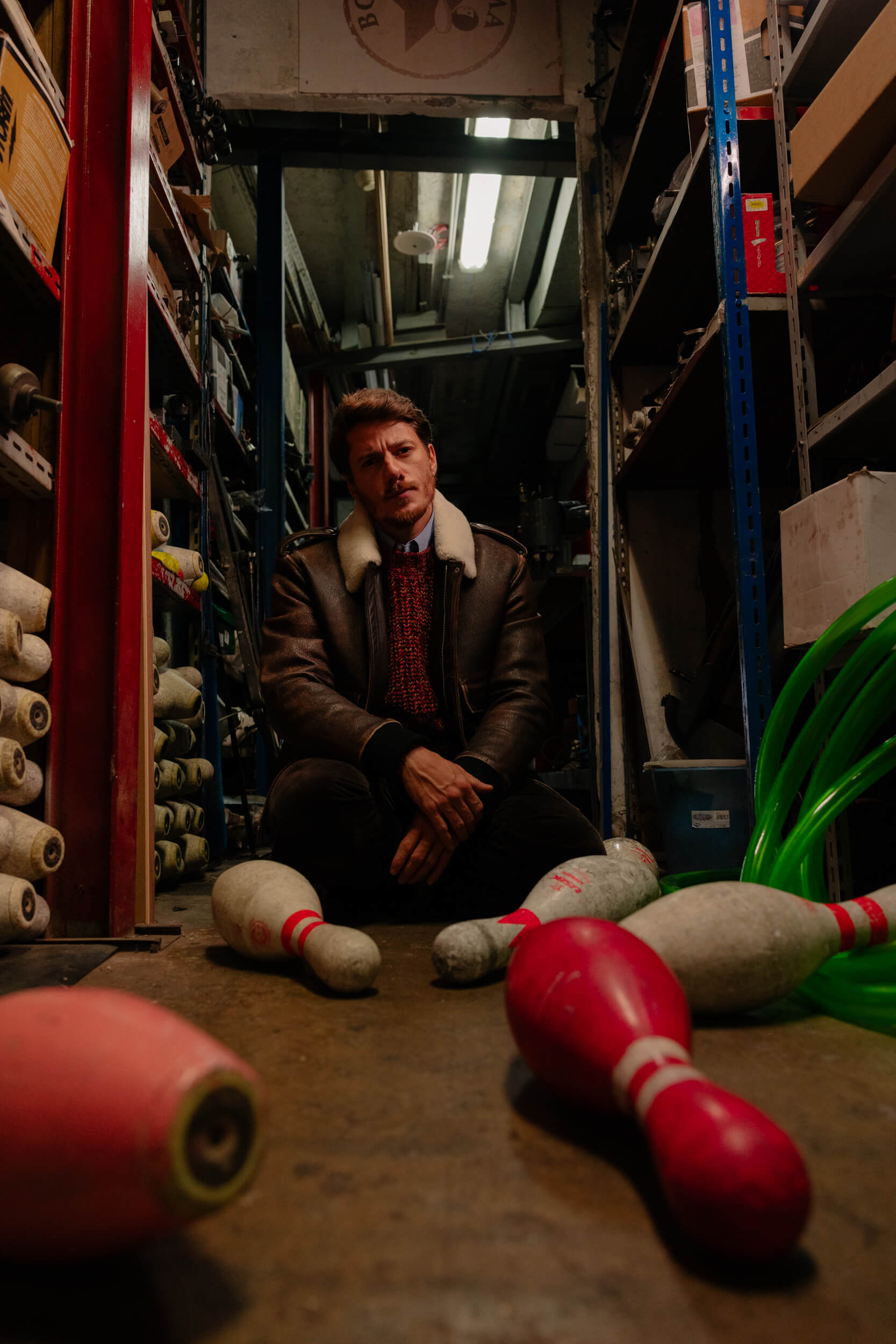
“I like to receive ‘orders’, I like to be an actor, I love this job too much”.
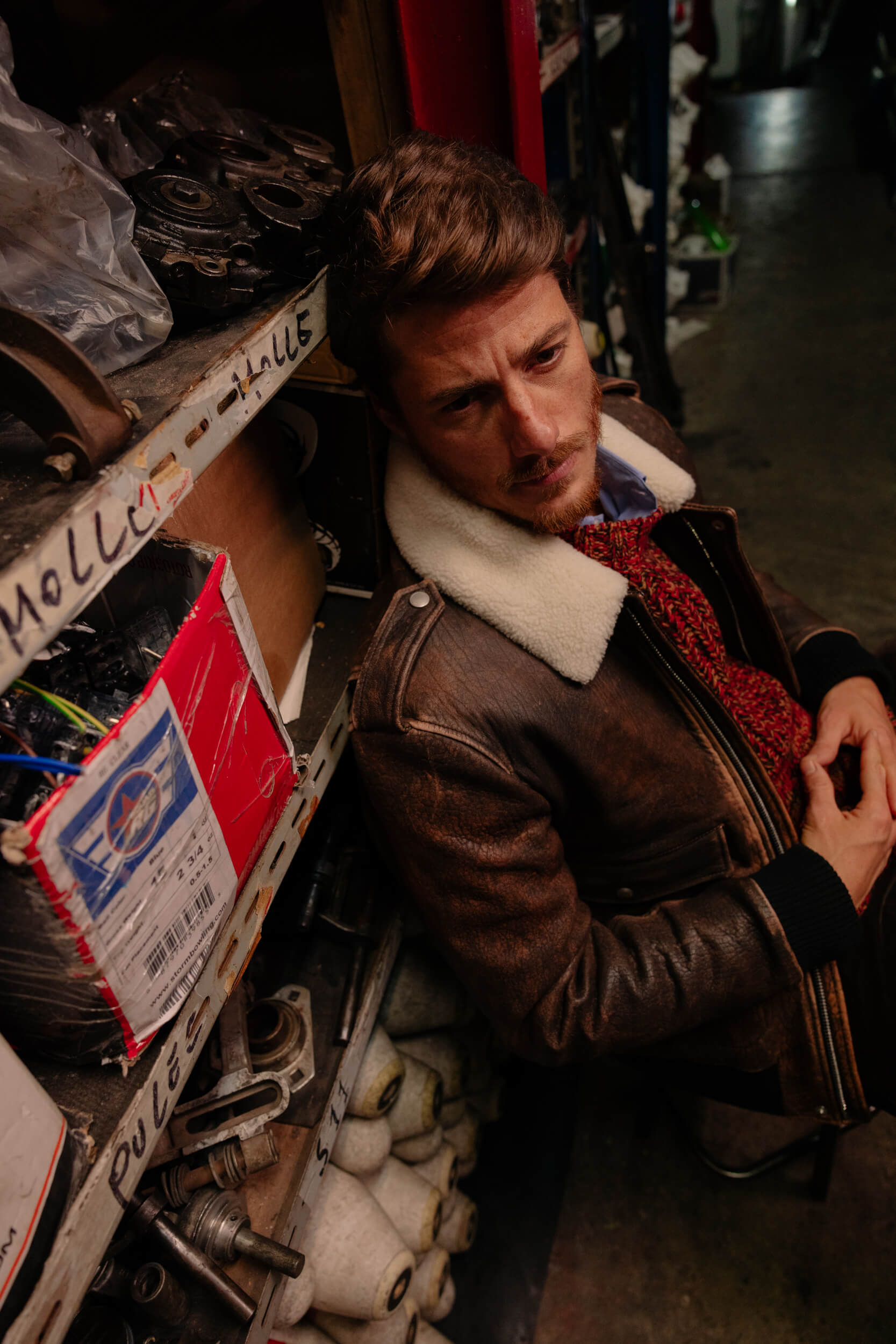
An epic fail on set, instead?
During one of the gunfight scenes, I remember that we were all thrilled, all over each other, with our veins bursting because of the dynamics of the scene, and at some point, I do my entrance and, in the middle of the scene, my gun’s clip falls out, and it was a long shot! In such cases, you just want to curse every piece of furniture in the house [laughs].
Or I remember that in another scene I touched my beard and mustache in a way a shouldn’t have, so a piece of my mustache was about to fall off: in fact, at some point, I hear someone screaming “stop” because I didn’t realize it but my mustache was peeling!
Your must-have on set?
I absolutely need to have water with me on set. I drink a lot of water; I really need to drink it often. Sometimes, perhaps it’s the emotion or the two-page dialogue you have to perform, you need it even more, and sometimes I might even have three bottles of water around the room I’m in, I surround myself with water! Obviously, on set, you need support from everyone and yourself, but water is the external element I could never go without, if I don’t have it, I panic.
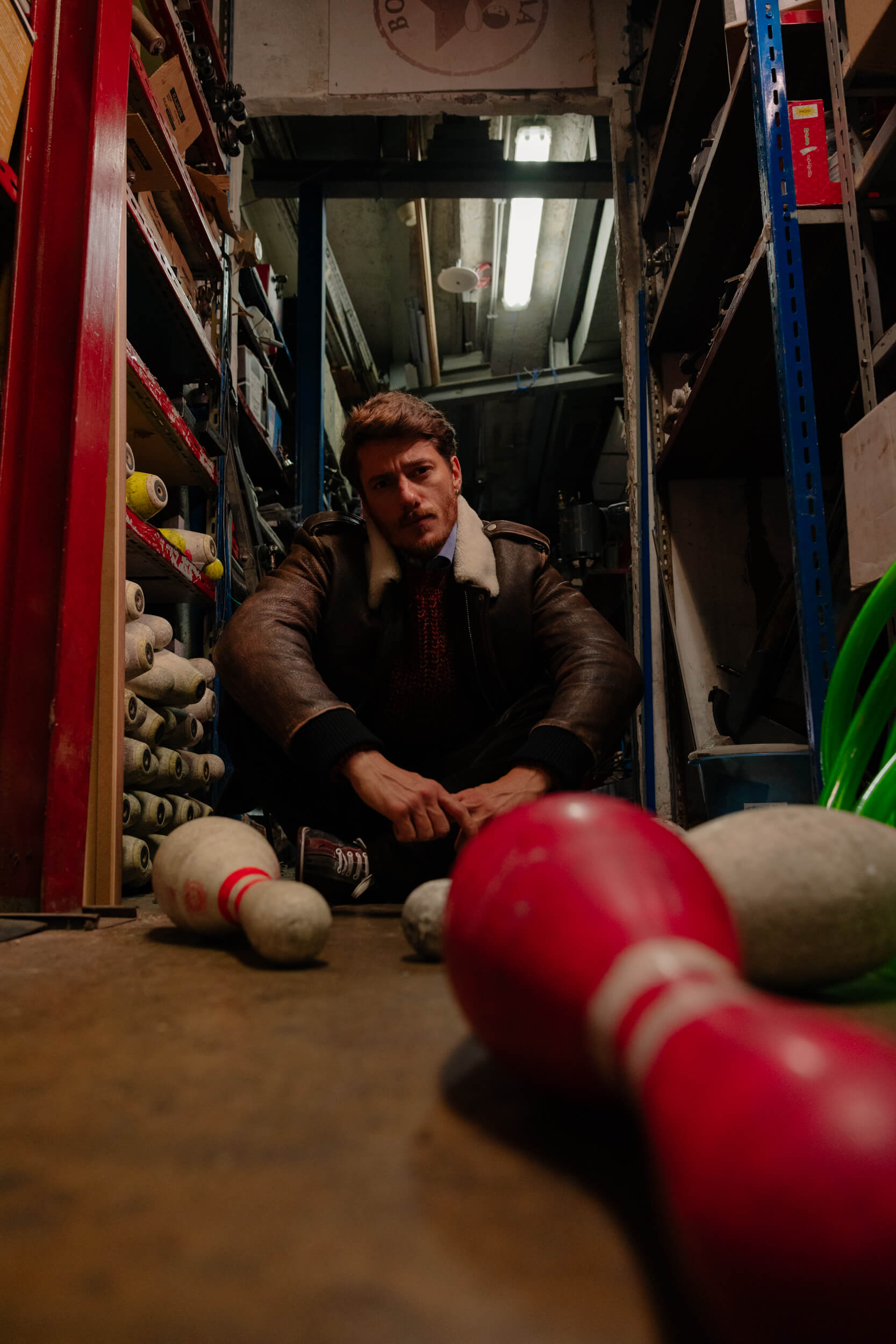
You’re biggest act of rebellion?
Always trying to take sides in favor of the part that I believe is right.
When I think it’s not right to do something in a certain way, I always try to give reasons for it, to say it, whether it is a simple dynamic, a line, or a hug. This job is made of a collective: there’s the view of a director, the view of other people other than you, so sometimes it’s hard, it’s a job in which you need to firmly believe in what you do and respect it because if you do respect it, there’s a good chance other people respect it, too. There’s also a point where you need to rely on other people, so it’s very important to choose well the journey you’re embarking on because you need to learn to trust those people: if you maybe don’t feel like doing something and the other person gives you a reason for it and does it well, then you need to trust them, I think. It’s a job that has to be done together, although I still believe that it’s right for the author and the director to have the last word.
What are you afraid of, instead?
There are so many fears I have… Actually, I can’t really think of anything related to my job, but rather something global, so a fear that I have is that other years without winter will go by. We’ve basically spent a year with no snow: today, I’m in Naples, it’s full winter, and I’m only wearing a long-sleeved jersey. That’s what I’m afraid of, that we keep going in a certain direction although we know that things are not going well. So, I wonder, when are we supposed to be doing something about it? It’s scary for us, 30-year-olds, I can’t imagine what it’ll be like for my son’s children. This situation is in the hands of all of us, not us as individuals, and it’s frightening for this reason, too.
What’s your happy place?
My happy place is in many places. In the present, for sure, in the people I love and that love me and care for me. Sometimes, though, a happy place is in some moments of the past; I think that everyone has a good amount of melancholy inside and that there are beautiful moments inside each of us, and they can be happy places, too.
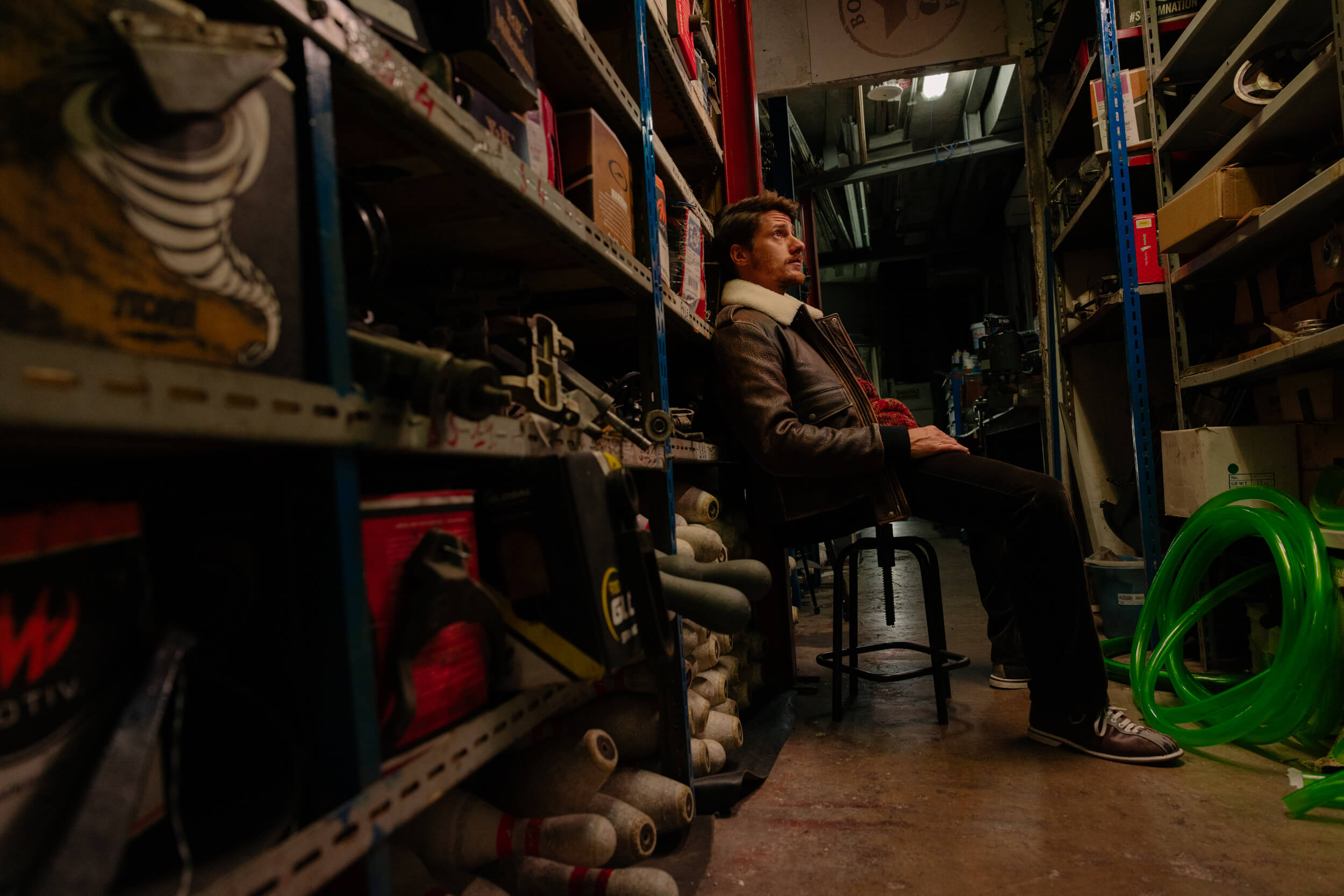
Photos & Video by Johnny Carrano.
Grooming by Adelaide Fiani.
Styling by Sara Castelli Gattinara.
Assistant stylist: Bianca Giampieri.
Location: Bowling Roma TIAM
Thanks to Other srl.
LOOK 1
Shirt & Trousers: Fendi
Shoes: Dior
LOOK 2
Total look: Dior
LOOK 3
Shirt, Sweater, Jacket & Trousers: TOD’S

